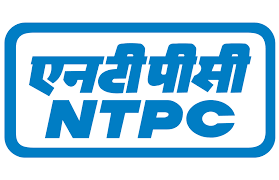by staff reporter
New Delhi
“Cross the Hurdles” an NGO to launch a mentoring program for people with disabilities on International day for Women tommorow
Cross the Hurdles’ Mentoring Program
A Mentoring Program for People with Disabilities is all set to be launched under the aegis of Cross the Hurdles. This program aims at “vision, voice and vocation – building a relationship”.
As of now no such program exists for the people with disabilities in our country.
Mentoring is a practice that has been recognized for centuries as being a fairly simple and effective way to help young people develop knowledge, skills, motivation, and confidence. Young people with disabilities have a great deal to gain from relationships with mentors who have the ability to guide them. Even the parents who have children with disabilities sometimes need to look up to a person who has raised a child with disability and has managed to make his/her bringing up an exemplary one or who has been successful in making the child with disability an independent and an educated individual who could live a life of dignity after the parents are gone. When a young person with disability is matched with an adult with a disability who has experience with navigating social and physical barriers, and who is a proud to identify as a member of the disability community, there is opportunity for a strong connection between the mentor and mentee. But we would also try to match a mentor without a disability to a young person with a disability provides an opportunity for each to learn from the other, to forge alliances outside of the community, and to broaden disability awareness.
Who is a Mentor?
Mentors, role models and muses through their life long personal experiences, presence and wisdom can train the others that how being a person with disability can be an asset, a source of resilience and creativity that must not be denied nor overcome, but rather celebrated. A mentor is someone more skilled or experienced, who offers advice, support, and guidance to facilitate the learning and development of an individual. It should be taken as that “mentors try to unite the head and the heart”; “share knowledge and wisdom and draw out the possibilities;” or “someone who can offer advice on issues besides academic matters.”
Who is a Mentee?
A mentee is person who wants to learn how cope up with the adverse conditions. Mentee with disability is a kind of student who needs to absorb the mentor’s knowledge, experience and has the ambition and desire to know what to do with this knowledge. Mentee with disability needs to practice and demonstrate what has been learned with a positive attitude. Mentee is the “gauge” to measure how interactive the connection between the mentor and mentee will be. This means that the mentee decides upon the amount of help and guidance he/she needs. Mentee should take the initiative to ask for help or advice and to tackle more challenging assignments.
Our Mentoring Program
It has many different forms. It can occur both one-on-one and in small groups, with various combinations of mentor/mentee matches. Mentoring can take place through personal meetings, E-mail exchanges, telephone conversations, letters, or any other form of correspondence.
The potential outcomes and benefits:
- Disability pride
- Improved self-advocacy skills
- Knowledge of disability rights
- Increased independent living skills
- Improved motivation and self-esteem
- Involvement in community and extracurricular activities
- Healthier relationships with family, friends, teachers and others
- Interest in having a job/career and the knowledge of how to do so
- Interest in continuing education and the knowledge of how to do so
The first phase of this program starts for Women with Disabilities on this International of Women i.e. on 8th March 2013.
Women with disabilities remain invisible in our society, women and girls with disabilities need direct contact with other women with disabilities who are working in jobs or who are actively participating in family life or taking their rightful place in the community. It is through their presence and wisdom that other women with disabilities can be an asset, a source of resilience and creativity. For females who come from less than ideal circumstances, mentoring can be a critical ingredient towards positive educational and career growth outcomes.
There is dearth of role models, mentors and muses for the women with disabilities particularly for those who are living in small towns and far flung areas. With this program of ours women with disabilities would have access to a range of successful women with and with disabilities, who could provide support and inspiration in a variety of ways.
Abha Khetarpal
President
Cross the Hurdles








